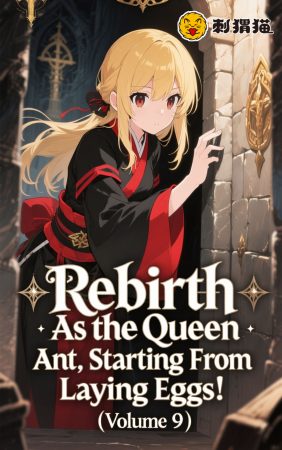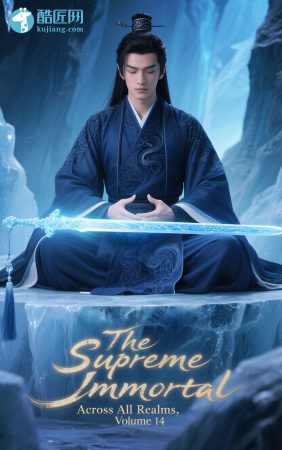Chapter 10: Standing on the Shoulders of Giants
Our Discord Server: https://discord.gg/PazjBDkTmW
You can buy coins here to unlock advanced chapters: https://gravitytales.com/coins-purchase-page/
Chen Wenlong’s words were tactful, but the problem he hinted at was very real.
The King of Qi’s estate was broke. The Armory had no funds. And forcing craftsmen to work for free would only spark outrage—undoing the reputation Xiao Ming had just started to rebuild.
“The work is yours, but the money is mine,” Xiao Ming gritted his teeth.
Even if he had to sell everything, he had to get the Armory up and running.
If he didn’t, then with Qingzhou’s poverty, even if he were as wise as the legendary *Yao or Shun, he’d still end up slaughtered by barbarians within two years. Chen Wenlong studied Xiao Ming’s frowning face in confusion.
The Armory had always been neglected in the Da Yu Empire. Why was the King of Qi suddenly so concerned?
However, remembering Xiao Ming’s past erratic behavior, Chen Wenlong dared not ask too much. Perhaps this was just another whim. Since it was an order, he could only obey. “Understood, Your Highness.”
Xiao Ming instructed him to gather all carpenters and blacksmiths in the city, then returned to the royal estate, pondering how to raise money.
Calling for Qian Dafu, Xiao Ming asked, “How much silver do we have left in the estate?”
“Your Highness, including the funds Consort Zhen sent with Ziyuan and Lüluo, we have about 1,000 taels of silver.”
“Only 1,000 taels?” Xiao Ming frowned.
The old Xiao Ming had no skill in making money, but he was an expert at spending it. He had wasted much of the funds Consort Zhen sent on extravagant indulgences.
As a result, despite being familiar with Qingzhou’s economy, his estate was on the verge of bankruptcy.
In the Da Yu Kingdom 1 tael of silver could buy 2 shi of rice. 1 shi = 120 jin (Chinese pounds) and 1 tael = 240 jin of rice.
If we comparing to modern prices in today’s world, 1 jin of rice costs ~2.5 yuan. So 1 tael of silver ≈ 600 yuan (~85 USD).
At first glance, 1,000 taels sounded like a lot. But it was barely enough to cover the estate’s expenses. After all, the servants, stable hands, and cooks all needed wages.
For example Qian Dafu earned 20 taels per year, Lüluo & Ziyuan earned 15 taels each. Plus, food and household expenses were significant.
“Give me 500 taels,” Xiao Ming ordered.
Qian Dafu hesitated. “Your Highness, this is the annual allowance from Consort Zhen. Please spend wisely.”
He feared Xiao Ming would waste it again, like in previous years.
“I’m not spending it on brothels, I’m doing something useful,” Xiao Ming scoffed.
Only after much hesitation did Qian Dafu finally hand over 500 taels in silver notes.
Taking the silver, Xiao Ming commanded, “Prepare ink and paper—I need to write to my father.”
By now, Qian Dafu had grown numb to Xiao Ming’s bizarre behavior. He immediately called for a servant to prepare the writing materials.
Of course, this wasn’t a casual letter—it was a plea for funds.
Xiao Ming exaggerated the hardships of his fief, claiming that the people were starving and that, despite the difficulties, he was personally funding the war effort against the barbarians.
He highlighted his recent victory, having captured thirty barbarian cavalrymen, but lamented the heavy losses and the Armory’s lack of funds for making weapons.
“Send this to Chang’an immediately—by fast horse!” Satisfied with his 1,000-word masterpiece of financial distress, Xiao Ming tossed it to Qian Dafu.
If Emperor Xiao Wenxuan still had any family affection, he might send financial support. And if not, at least the letter would irritate him.
Xiao Ming had one last option—the wealthy noble families of Qingzhou. But these power-hungry aristocrats would never willingly donate money.
In fact, they hoped the King of Qi would remain weak, so they could continue their unchecked dominance.
However, Xiao Ming had no intention of letting them off the hook.
These noble families were fat sheep, and he was a man who plucked feathers from every passing goose—how could he not shear these woolly targets?
Robbing them outright wouldn’t work. But tricking them into spending money? That was easy.
Most nobles were officials or merchants. If he introduced a new and valuable product, they would eagerly pay for it.
For the next three days, Xiao Ming remained at the Armory, overseeing operations. With 500 taels of silver, the once-dormant facility came to life. Wood, coal, and iron ore flowed in daily. The once desolate workshop bustled with activity.
Inside, thirty craftsmen sat in a semi-circle. Standing before them, Xiao Ming lectured passionately. These thirty men represented all of Qingzhou’s skilled artisans—mostly carpenters and blacksmiths.
Today, Xiao Ming introduced them to a completely new concept— lathe.
After analyzing the technology library and reviewing the First Industrial Revolution, Xiao Ming concluded that lathe was the key to industrialization.
These included Boring machines, Milling machines, Grinding machines, Drill presses, and Gear-cutting machines.
Before the Industrial Revolution, these tools were essential for producing precise mechanical components.
And only with precision-machined parts could engineers build steam engine cylinders. The steam engine then further advanced the lathe, creating a cycle of technological progress.
During the Warring States period, China had basic lathes. They were mostly wooden, powered by foot pedals, and used for shaping water wheels.
The problem was wooden structures were unstable and tool bits couldn’t be securely fixed. For a proper lathe, high-quality steel was necessary to secure cutting tools and shape metal parts.
“A craftsman is only as good as his tools.”
Lathes embodied the technological progress of craftsmen. And they were the foundation of the Industrial Revolution.
Before lathes could be made, Xiao Ming needed to improve steelmaking.
Observing the Armory’s weapon-forging methods, he noticed they still used the traditional crucible steel technique.
It was workable, but not efficient. He considered introducing crucible steel smelting, but graphite crucibles were unavailable.
However, according to the technology library, Shandong Province (where Qingzhou was located) was rich in graphite deposits.
If he could pinpoint a graphite mine, he could start large-scale steel production.
By now, it was the late 17th century. Da Yu resembled the Ming-Qing transition era—completely oblivious to changes in the outside world.
Xiao Ming didn’t know how much progress Europe had made.
But if Mongolia had never conquered Europe, then the West might have developed freely—potentially advancing beyond historical timelines.
Either way, he had to prepare.
* Yao and Shun are legendary rulers in Chinese mythology and a key part of classical Chinese culture. They are considered to be two of the Five Emperors who ruled China from 2355–2185 BC.












